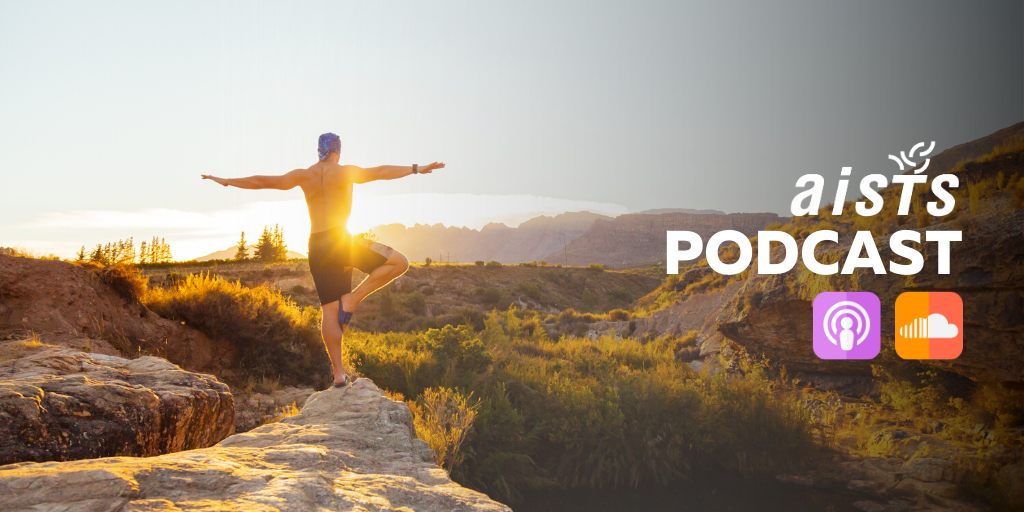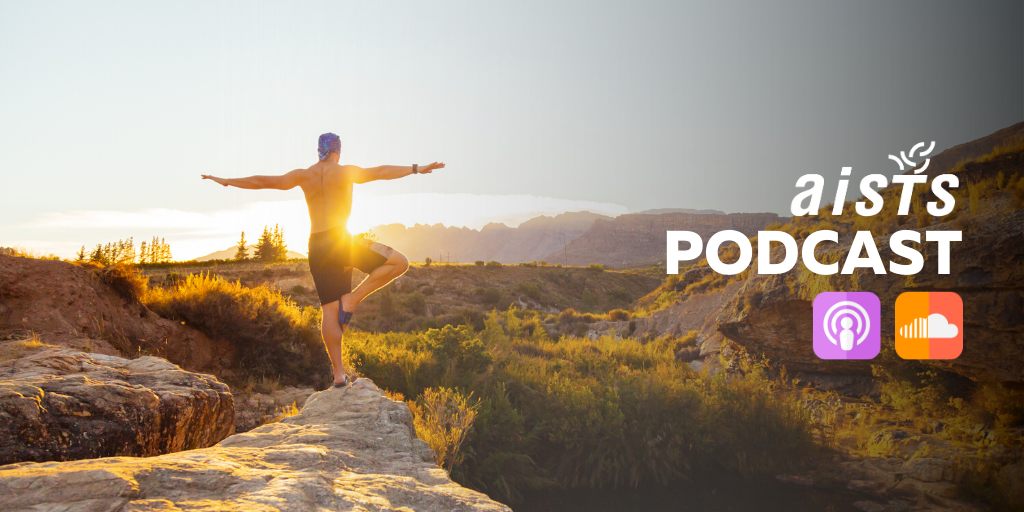
AISTS SPORT MEDICINE PODCAST #54
DOES STRETCHING HELP MUSCLE RECOVERY AND/OR INJURY PREVENTION?
For years stretching has been promoted as a way to prevent injuries, but is it true? In this month’s Sports Medicine podcast, Yoori Jung and Guillermo Marin from AISTS class of 2019 aim find out.
As an ex-professional rink hockey player, Guillermo had spent years stretching as part of his athletic career, only to find out that the benefits might not be as clear as everyone thought. This episode focusses on static stretching.
The AISTS Sport Medicine Podcast is recorded by participants of the AISTS Master of Advanced Studies in Sport Administration and Technology. It has recently been ranked as no.7 in the world’s best sport medicine podcasts.
AISTS MED Podcast Transcript
Yoori: Hello everyone, I am Yoori and welcome to our medicine podcast. Today, we are going to talk about the ‘myth’ of stretching that “Does stretching really help muscle recovery and/ or injury prevention?”. Before we start our discussion, let’s welcome our guest Guillermo. Hello Guillermo.
Guillermo: Thank you very much, Yoori. Hi everybody, I’m Guillermo and I’m a current participant of AISTS and a former rink hockey player.
Yoori: Can you tell me your experience as an athlete? Did coaches or physio-therapists encourage you to do some stretching before and after your game?
Guillermo: Yes, of course. They told me stretching is really important because it is helpful in terms of muscle recovery and injury prevention. So, I used to do it a lot both before and after my training or game.
Yoori: And did you find it helpful?
Guillermo: Yes, I thought so. I wasn’t sure about injury prevention, but I felt stretching helped my body to be ready for the exercise and recover from the intensive use of the muscle. You know when you do the stretching, you feel the tension and relaxation afterward.
Yoori: That’s true. But then you must be surprised when you heard that stretching does not help either muscle recovery or injury prevention.
Guillermo: Yes. I was shocked, so I wanted to know more about it.
Yoori: Then can you please share your knowledge with us?
Guillermo: Yes, of course. It’s my pleasure.
Yoori: So, we are only going to talk about static stretching which is a slow or passive one, bringing the joint to its end range of motion and holding it for a certain period of time.
Guillermo: Yes, and normally it is the most common way of stretching.
Yoori: And this does not help muscle recovery and injury prevention at all?
Guillerm: Correct. There are many scientific studies that have been done on this topic.
Yoori: Okay. Let’s talk about it one by one. Firstly, muscle recovery. So, muscle recovery means improvement in the performance of skeletal muscles used during intense or prolonged exercise. And, again, static stretching does not help muscle recovery.
Guillermo: No. To be specific, based on scientific researches, there is no clear evidence saying that pre- stretching is effective in reducing post-exercise soreness and reduced force abilities of muscle. Also, post-exercise stretching provides little or no recovery benefit when compared with a passive recovery. This means static stretching is not a beneficial recovery option.
Yoori: No differences between static stretching and just taking rest? It’s quite a surprise.
Guillermo: It is.
Yoori: And what about the relationship between static stretching and injury prevention? It is commonly accepted that stretching is a useful tool for injury prevention because it allows elongation of muscle and increases the range of motion of the muscle, too. Of course, which can improve your movement while exercising.
Guillermo: Yes, it is true that stretching increases your flexibility. However, that doesn’t necessarily mean that stretching can prevent muscle injury. In the literature, conflicting data have been reported concerning the relationship between flexibility and athletic injury.
Yoori: You mean the literature reports opposing findings from different samples?
Guillermo: Yes, and we believe that a part of this contradiction can be explained by considering the type of sports activity in which an individual participates. Sports involving ‘explosive’ type skills, with many and maximal shortening stretching cycle movements require a muscle-tendon unit that is compliant enough to store and release a high amount of elastic energy. But here, we are looking to a small part of the picture, the muscle-tendon unit, speaking in general terms and looking to the big picture, there is no evidence that says that stretching prevents muscular injuries.
Yoori: I see. We also had a chance to interview Mr. Torbjørn Soligard, scientific manager at the International Olympic Committee, about his opinion on the arguments that support stretching as an effective tool for injury prevention and muscle recovery.
Guillermo: Thanks, Yoori. Thanks for inviting me to contribute to your podcast. Yes, um, there is a… Yes, so I think I’m aware of the studies… what studies you are talking about. It’s probably one from Eric Witvrouw, with the Belgium physiotherapist as well, it’s a very good one. He knows science too. But I think they didn’t find direct evidence, you know. They have um… If I remember correctly, you have to correct me if I’m wrong, but I think they found that there is some rationale for what stretching could work for this type of sports, you know based on… exactly, so that it helps to build the rationale but they haven’t been tested directly what, for example, in the randomised controlled trial, I believe. And I think this goes along with what I mentioned earlier in terms of… that there is a rationale for some type of sporting populations and some injury types too, that maybe increased flexibility, which is a benefit you get from stretching, could potentially work, but for the moment we need much more evidence because it’s actually very weak and those types to be tested more often they have not found any effects from stretching I’m afraid.
Yoori: Thank you very much for your insights.
Guillermo: I’m happy that you found some of the interesting and that helped. I wish you good luck with the Project and with the Podcast and good luck with that.
Yoori: It was a tough topic because it is already widely and strongly believed that stretching can help muscle recovery and prevent injury to some extent, wasn’t it, Guillermo?
Guillermo: True. It was a hot and controversial topic in our class, too. Although scientific researches provide evidence, people still believe stretching is helpful.
Yoori: Yes, we even had a question about the placebo effect of it.
Guillermo: Yes, I think it will be an interesting topic to discuss .
Yoori: I agree. Well, thank you Guillermo for sharing all your experience and knowledge today. Also, many thanks to Mr. Torbjorn Soligard to tell us his opinion about the topic from an expert’s point of view. Last but not least, thank you everyone for listening to our podcast. Hope you enjoyed it. Thank you.
You can find more AISTS Sport Medicine podcast on our Soundcloud channel or on the Apple Podcast app. To learn more about the AISTS Master of Advanced Studies in Sport Administration and Technology, visit https://aists.org/programmes/
Photo Canva.





